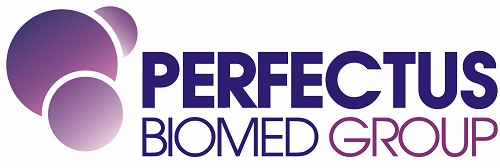Perfectus Biomed elevate method testing beyond the ‘standard’

Perfectus Biomed are delighted to announce that they have once again expanded their range of UKAS accredited test methods.
In addition to their accredited biofilm methods, the latest Extension to Scope to ISO 17025 sees a remarkable achievement to accredit an Ex-vivo Porcine Lung Tissue Model. Ordinarily ISO 17025 is applied to current standard methods, typically carried out in suspension or on abiotic surfaces. Accrediting reproducible and reliable tissue based models is pivotal in creating models that represent complex ‘real world’ conditions and therefore in developing safe and effective treatments and therapies. In contrast EN 1276 is a straightforward, widely used biocide testing standard. Accrediting the ‘everyday’ standards and methods to ISO 17025 offers customers an extra level of confidence and affirms credibility.
About the methods
Ex-vivo Porcine Lung Tissue Model
This model provides scientists with a test method that utilises a biological substrate to mimic human lung tissue especially useful in the study and treatment of chronic lung infection, such as patients with Cystic Fibrosis. Ex-vivo studies are important as they inform on the performance of candidate therapies ahead of clinical trials, in effect de-risking pre-clinical studies.
The model was published by Dr Freya Harrison’s group at the University of Warwick in 2014 who studied lung infection and response to Pseudomonas aeruginosa. Microbiologists from Perfectus Biomed received training in the use of the model at Warwick before bringing it in-house and validating the technique within their laboratory at Sci-Tech Daresbury. Subsequent accreditation of this method to ISO 17025 demonstrates Perfectus Biomed’s expertise in achieving the highest standards for testing complex ‘real world’ clinical scenarios.
EN 1276
EN 1276 is a European Standard which specifies a test method and the minimum requirements for bactericidal activity of disinfectant and antiseptic products. This standard is widely used in order to establish biocidal efficacy, however, for a product to be marketed and claim as such it must be registered under the Biocidal Products Regulation. The reassurance of having had an ingredient or finished product tested by a laboratory accredited to ISO 17025 provides enhanced credibility of the data submitted for the BPR.
These latest accreditations along with our other biofilms methods can be verified at https://www.ukas.com/wp-content/uploads/schedule_uploads/00002/9192Testing%20Single.pdf
To find out how you can use these accredited methods to support your testing please call to speak with one of our PhD scientists on 01925 737237 or email them at info@perfectusbiomed.com
The Perfectus Biomed team would like to recognise George Gray, Hollie Leighton, Jak Manser and Stephanie Thornhill and, from the University of Warwick, Freya Harrison and Niamh Harrington for their work to support our mission to harness innovative science to improve lives.





















